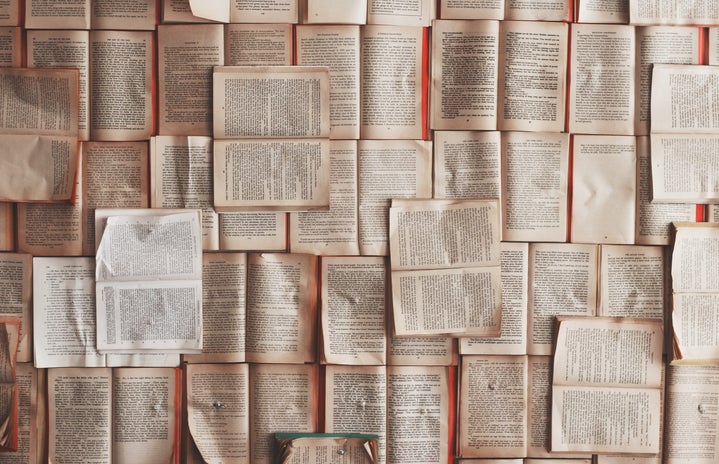An established voice in both adult rom-coms and young adult fiction, Suzanne Park is a writer who continues to cement herself as one of the go-to voices in women’s fiction. An advocate for the inclusion and representation of Asian-Americans in media, Forbes named her one of the authors who instigated the Stand Up for AAPI Campaign, supporting the greater AsianAm literary community following 2021’s Georgia massacre.
Suzanne Park is a Korean-American writer who was born and raised in Tennessee. She graduated from Columbia University and received an MBA Degree from UCLA. She currently resides in Los Angeles with her husband, her “female offspring” and a sneaky rat that creeps around on her back patio. In her spare time, she procrastinates. Her novels have been featured in “best of” lists in NPR, Popsugar, Real Simple, Country Living, Bustle, Buzzfeed, Marie Claire, Parade, Shondaland and The Today Show.
Her latest novel, “The Do Over,” follows Lily Lee who is alarmed to learn that a background check has revealed she’s a few college credits shy of a completed curriculum. Forced to return to her old college campus nearly ten years after she left, Lily’s met with another roadblock when she finds out that her computer science TA just so happens to be her ex-boyfriend. As she relives the college experience (parties, late nights of studying, dorm meals), she reconnects with her ex, who seems to be doing well for himself in grad school. And reconciling that alongside the newfound fumbles in her own life might be a challenge all on its own — final exams notwithstanding.
If you could be a college student for one day, what would you do again or for the first time?
In addition to trying out the latest dining options on campus, I would love to gain access to the main library and explore. Back in college, I always thought of the library as a place to study, and never really looked around all of the floors. Now when I go to museums and there are books on display, I look for the oldest one and try to imagine that time period. It’s a fun way to explore history.
If you had to choose an album or certain song to best describe the relationship between Lily and Jake, what would it be and why?
A reader posted a video of my book with Taylor Swift’s “Back to December” track, and I can’t uncouple my book from this song now. It’s over a decade old, so that fits with the story of then vs. now, and the lyrics fit so well too!
So this is me swallowin’ my pride
Standin’ in front of you sayin’ I’m sorry for that night
And I go back to December all the time
It turns out freedom ain’t nothin’ but missin’ you
Wishin’ I’d realized what I had when you were mine
I’d go back to December, turn around and change my own mind
I go back to December all the time
Excuse me while I go cry now.
What intention or message did you have when you began to write “The Do Over”?
When I first started drafting, I wanted the main theme to be “it’s never too late to try something hard and new.” Once I got deeper into the story, I wanted to include Lily’s anxiety, imposter syndrome, and parental expectations— to let people know if they’ve been dealing with these issues, they are not alone.
When you were a student, how did your experience as a Korean-American, in terms of education, differ from your Columbia University peers? How did this perspective help form Lily’s character?
There’s a scene I cut about Lily’s first day of orientation, where she’s at Convocation and the Dean rattles off the achievements of the class and she realizes she’s out of her league. This actually happened at Columbia, and I remember thinking that no matter how high-achieving I was (with my Korean parents prodding me along the way), there were always people there who had accomplished so much more. It was eye-opening and devastating. When Lily has to go back to college, she has to relive this all over again. But with her supportive friend group and more life experience under her belt, she’s able to thrive the second time around.
If you could describe your book as an aesthetic, what would it be and why?
When I think of aesthetics, I always picture a vintage/bohemian/farmhouse look in my head. But because Carlthorpe is a private college set in the Northeast, I’d probably say collegiate and academia-inspired, with leather bags, blazers, boots, and fun wire-rim or chunky glasses.
What were some of your favorite college memories that you reminisced over when writing “The Do Over”?
I had an opportunity over the last few years to visit Pomona and Claremont McKenna, and most recently, UCLA. There, I saw students hanging out on the campus lawns— on blankets, towels, hammocks— and I included this in the book because this was something I did too as a student at Columbia. On nice days, we hung out on the steps or on the grassy areas next to them. Such happy memories.
Rom-coms are a hit or miss for certain people. Are there any misconceptions you want to tell readers are not true or something to entice them before they read your work?
Every few weeks an argument emerges on Twitter and Tiktok about how rom-com novels aren’t steamy enough and why there should be more delineation of what constitutes a rom-com vs. contemporary romance. I’m a huge research nerd, and I’ve come to the conclusion that “rom-coms” as defined by publishing is an entirely different thing than the “rom-coms” in film and TV. If you think of any classic rom-com from the last two decades, or even look at what’s currently trending now on Netflix, they are PG-13-ish and there’s a lot of comedy in them (the good ones, at least) and many of them come with a heavy dose of self-discovery or coming-of-age, or even a blending of different genres.
Because the broadcast and publishing definitions have diverged, I usually tell people my books are like the rom-coms you see on TV and in film, and there’s usually no confusion. Publisher’s Weekly said “Park makes tough topics go down easy by couching them in wry humor” so my books are admittedly a little harder-hitting than your typical rom-com. I think the layering I do in my stories, so readers can get enjoyment from reading but if they want to dig deeper, they’ll definitely see more there, has started to make its way to the right audience, which I hope includes Her Campus readers.
Huge thanks to Suzanne for answering my questions about “The Do Over.” You write with tenderness about relationships that some authors aren’t able to convey so I really appreciated those sweet moments!
Special thanks to Amanda Lara from HarperCollins who began and extended this interview opportunity with me and to Julie Paulauski who helped me finish it.


